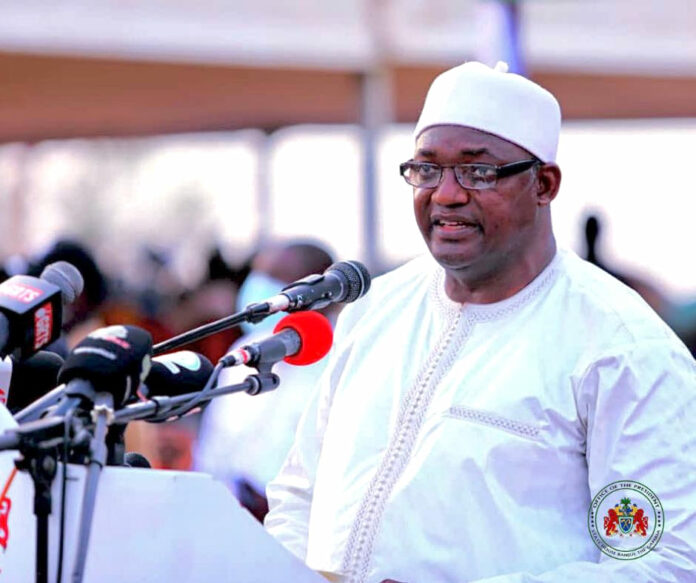By Zackline Colley
In his annual State of the Nation address, President Adama Barrow underscored the crucial role of agriculture and natural resources in The Gambia’s economy, highlighting notable achievements in the 2023 season and outlining ambitious plans for the future.
President Barrow revealed a significant growth in agricultural production, attributing this success to favourable weather conditions and timely government interventions, including free ploughing services, distribution of free seeds, and heavily subsidized fertilizers. As a result, cereal production saw substantial increases: rice by 27%, maize by 25%, millet by 14%, and sorghum by 17%. Cash crops also experienced a boost, with groundnuts up by 12%, cowpeas by 26%, ‘findo’ by 9%, and sesame by 6%.
Despite these gains, agriculture’s contribution to the GDP slightly decreased to 24.4% in 2023 from 25.7% in 2022, marking a 0.2 percentage point decline. However, the sector’s growth remains a cornerstone of the nation’s economy.
“Looking ahead to the 2024/2025 cropping season, the government has earmarked GMD 1.5 billion for the purchase of 36,659 metric tonnes of groundnuts, a significant increase from the 10,000 metric tonnes acquired in the previous season. Plans are also in place to cultivate 5,000 hectares of rice, a target that could increase with the involvement of registered commercial farmers,” he said.
He added that to support national food security, the government will procure 180 tractors and 20 rotavator boats for year-round use. Efforts to enhance rice processing will be bolstered through integrated equipment, training for processors, and expanded irrigation facilities.
Additionally, President Barrow announced plans to distribute seeds for rice, groundnuts, maize, and beans to farmers, along with subsidized fertilizers available at various locations across the country.
In a bid to improve financial inclusivity, matching grant funds will be extended to microfinance institutions operating at the grassroots level. The government also aims to integrate modern technologies, such as ICT for Internet banking and mobile phones, into farming communities and establish at least five agricultural insurance schemes to mitigate risks in agricultural lending. These schemes will be managed through public-private partnerships.
Among other interventions, The Gambia Agricultural Transformation Programme will strengthen both the public and private sectors across the agricultural value chain, focusing on sustainable management of natural resources to bolster food and nutrition security.
President Barrow’s address highlighted the government’s commitment to transforming agriculture and ensuring the sector’s growth continues to contribute significantly to the nation’s economy.




